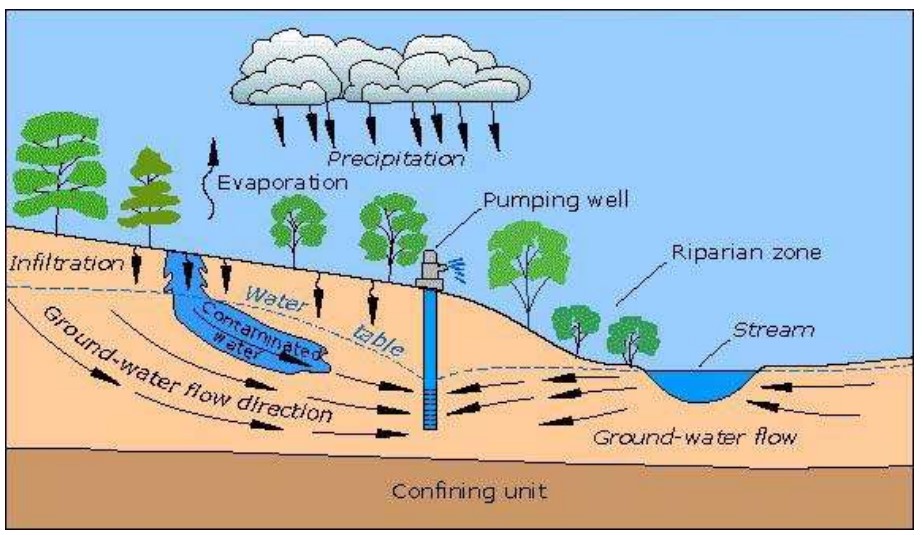GWUDI
This page defines and provides information about Groundwater Under the Direct Influence of Surface Water (GWUDI).
GWUDI determination resources
Groundwater under the direct influence of surface water (GWUDI) refers to a groundwater source that is located close enough to nearby surface water (e.g., a river or lake) to receive direct surface water recharge. Because a portion of the groundwater source's recharge is from surface water, the groundwater source is considered at risk of contamination from pathogens and viruses that are not normally found in true groundwaters.

Pathogens, such as
Giardia and
Cryptosporidium, are often found in surface water and can cause gastrointestinal illness and other health risks. In many cases, this water needs to be filtered and disinfected through the use of additives such as chlorine to inactivate (or kill) microbial pathogens.
The federal Surface Water Treatment Rule requires that all public water systems that use surface water or use groundwater under the direct influence of surface water meet performance standards of filtration and disinfection to deactivate pathogenic organisms within the water (OAR 333-061-0032).